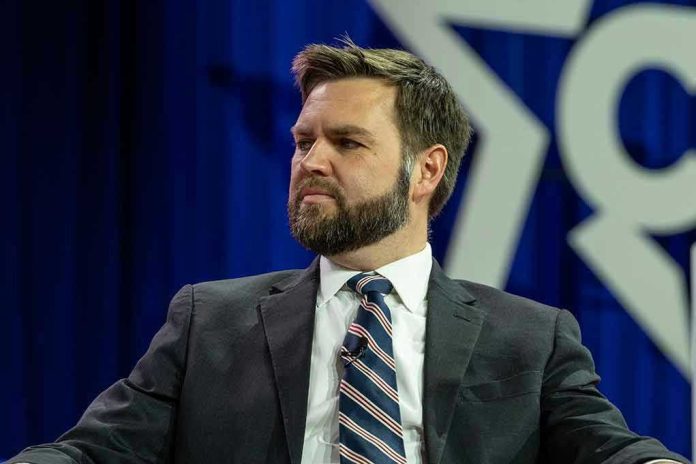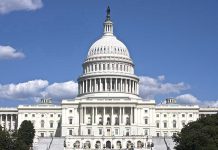
Vice President JD Vance flips the script on mainstream media, demanding to know why previous administrations weren’t grilled over their ties to Jeffrey Epstein.
At a Glance
- Vice President JD Vance defends the Trump administration’s transparency.
- Media criticized for not scrutinizing previous administrations on Epstein.
- GOP faces internal divisions over handling of Epstein-related files.
- Bipartisan calls for transparency continue to grow louder.
Vance Defends Trump Administration and Criticizes Media
Vice President JD Vance has taken a stand defending the Trump administration’s approach to the Epstein case, calling out the mainstream media for what he perceives as a glaring double standard. Vance has boldly questioned why the media failed to subject previous administrations to the same level of scrutiny on Epstein-related issues. The vice president’s remarks come amid increasing bipartisan demands for transparency concerning Epstein’s files, which continue to cast a long shadow over the nation’s political landscape.
Vance turns tables on media asking if Trump is covering for 'pedophiles,' says press never asked prior admins – Fox News THANK YOU @JDVance FOR USING YOUR THINKING CAP! @realDonaldTrump is THE best PREZ! https://t.co/tbLdveIVsL
— Biggest Trump Supporter (@DJTrump_Prez) July 29, 2025
While Vance’s defense has resonated with Trump supporters, it has also highlighted a rare public split within the Republican Party. House Speaker Mike Johnson and other GOP leaders have joined the chorus for transparency, insisting that justice must be served for all involved. The administration’s critics argue that the calls for transparency are not just politically motivated but are essential for restoring public trust in government transparency.
Trump Dismisses Controversy as a “Hoax”
President Donald Trump has been vocal in dismissing the Epstein controversy as nothing more than a political “hoax” perpetuated by his opponents. Trump has urged his supporters to move on, accusing Democrats of exploiting the situation for political gain. Yet, the pressure from within his own party seems to suggest that many Republicans are not willing to let the issue fade into obscurity without answers.
Despite the pushback, President Trump remains steadfast in his stance, accusing the media and Democrats of attempting to derail his administration with baseless allegations. However, the bipartisan efforts led by Reps. Thomas Massie and Ro Khanna to force a House vote on releasing Epstein files indicate a growing impatience with the status quo.
The Media’s Role in Shaping Public Perception
The media’s role in shaping the public narrative cannot be overlooked. Vance’s critique of media bias taps into a broader conservative frustration with what is often perceived as selective reporting. The media’s intense focus on the Trump administration, while glossing over past administrations’ dealings with Epstein, has fueled skepticism among conservatives about the fairness of coverage.
Legal obstacles continue to pose significant challenges to transparency efforts. A recent ruling by a Florida judge denied the Department of Justice’s request to unseal grand jury testimony, further complicating efforts to bring more information to light. These legal barriers only add to the frustration of those demanding greater transparency.
Implications for the GOP and Beyond
The Epstein case has far-reaching implications for the GOP and the country at large. Internally, the party faces potential division as members weigh the political risks of either standing by the administration or aligning themselves with transparency advocates. Externally, the controversy threatens to erode public trust in government institutions and could have lasting effects on voter engagement, particularly within the Republican base.
The broader societal impact is also significant, with increased public cynicism and conspiracy theories gaining traction in the absence of clear answers. The situation underscores the need for consistent transparency standards across administrations to prevent such controversies from undermining the rule of law and public confidence in governance.







